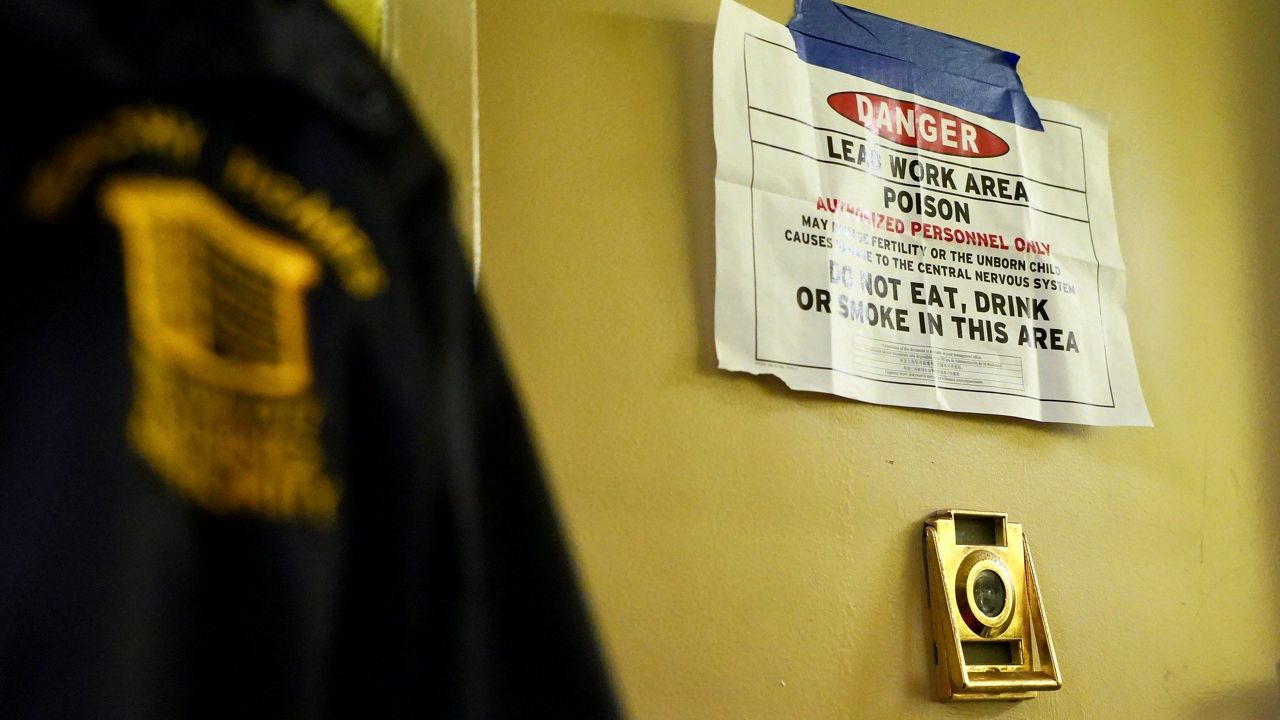The New York City Housing Authority says it has a deficit of more than $338 million in unpaid rent, despite new funding in the state budget to chip away at pandemic-era rental arrears. Authority officials have said that the deficit, which grows each month, is imperiling its finances and threatening cuts to key repairs to stay in compliance with federal housing rules.
The money included in the budget, signed into law earlier this month, would eliminate about $163 million in unpaid rent, numbers provided by the authority show, primarily by expanding state funding to a program that covers renters who applied for the 12-month Emergency Rental Assistance Program. It comes from $391 million in the $229 billion budget that would cover ERAP-eligible rent for every public housing resident in the state.
What You Need To Know
- NYCHA says it has a deficit of more than $338 million in unpaid rent, despite new funding in the state budget to chip away at pandemic-era rental arrears
- Authority officials have said that the deficit, which grows each month, is imperiling its finances and threatening cuts to key repairs to stay in compliance with federal housing rules
- The authority is continuing to miss rent collections — which make up a third of its operating budget — by $10 to $12 million on average each month, representatives for NYCHA said
The inclusion of the funding, which was not part of Gov. Kathy Hochul’s executive budget but was added by the legislature, came after months of negotiations and advocacy from NYCHA tenants.
“We're stepping in and doing a very substantial amount of money from the state budget,” said state Senator Brian Kavanagh. “There is a city budget that is due next month, and there are federal resources that have been made available. From my perspective, the NYCHA officials are very pleased with this outcome.”
Without the state funding, NYCHA’s current total rental arrears are over $500 million. With it, the agency is still staring at a deficit of hundreds of millions of dollars.
Yet NYCHA is continuing to miss rent collections — which make up a third of its operating budget — by $10 to $12 million on average each month, representatives for the authority said.
Some city officials say they had hoped the state could pledge more funding to NYCHA as the authority faces dwindling reserves.
“From my perspective, it's simply just not enough,” said Councilwoman Alexa Avilés, who chairs the public housing committee.
In an emailed statement, NYCHA interim chief executive Lisa Bova-Hiatt said she was “grateful” to state leaders for the funding.
"New York state has once again demonstrated true leadership by providing financial equity to all public housing residents,” Bova-Hiatt said. “Most of all, this is a victory for public housing residents who made their voices heard in Albany and at home in New York City."
In recent appearances at City Hall, Bova-Hiatt has sounded the alarm over the authority’s bleak financial picture.
In March, she said that NYCHA had been forced to draw more than $175 million from its reserves, leaving only enough money for 25 days of operating expenses. (The federal government suggests that public housing authorities should have three months’ worth of expenses on hand.)
Without further funding, Bova-Hiatt told the City Council, NYCHA would have to cut staff, pause planned construction projects to community centers and playgrounds, and forgo repairs required to meet rules and guidelines set by federal housing authorities and court mandates.
While the new state funding fills a sizable portion of the rental gap, by the end of the year, the amount of unpaid rent is projected to grow by $80 to $96 million, given the authority’s average monthly rate of missed rent payments.
Kavanagh said he and other state legislators are pushing federal lawmakers to “do their part” to contribute to NYCHA, although it’s not clear what sources the funding would come from. He added that he is “optimistic that we will get NYCHA’s budget back in shape.”
Avilés said it was not clear whether Mayor Eric Adams’ administration had included any funding in its latest budget plan earmarked for NYCHA’s rent backlog.
Representatives for Adams did not respond to a request for comment.
In a City Council hearing focused on NYCHA’s budget Friday, Avilés said she intends to ask NYCHA leadership how they will account for the growing amount of rental arrears, and about plans included in the current budget to downsize a program that helps turn over vacant units for new tenants.
The authority has thousands of units that need repairs and upgrades, while many families both already in public housing and in homeless shelters wait for placements.
“The state, from my perspective, just really fell short,” Avilés said. “We are still in a very tenuous situation.”



